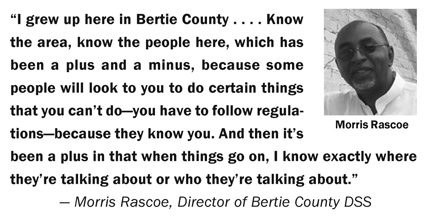 |
 |
 |
©
2007 Jordan Institute
for Families

Vol.
12, No. 3
June 2007
Ethics and Dual Roles in Rural Child Welfare Practice

This is a familiar scenario for social workers serving rural communities. Relationships among small populations can be a strength, offering supportive safety nets and empathy. Yet they can also compromise confidentiality and deter people from seeking services due to the stigma associated with needing help. Rural social workers may also face challenges when the lines between professional and personal relationships blur.
How can we achieve a balance between the need to relate to individuals and families in a manner consistent with rural culture while simultaneously upholding the boundaries and standards that define our profession?
The book Rural Social Work Practice (2005), offers the following suggestions for dealing with dual relationships in rural communities:
- Face facts: dual relationships are inevitable in rural communities. Be prepared to deal with them.
- Be sensitive to community expectations.
- Compartmentalize your roles, not your relationships. Educate your clients on the different roles you play in the community and in the client’s life. Teach the client how to operate within these established roles.
- Know thyself.
- Know others. Identify other social workers in the region or state with whom you can consult.
- Nurture networks and resources.
- Make referrals. When a dual relationship exists, explore the possibility of referring the client to another practitioner.
- Be aware of confidentiality.
- Keep thorough documentation to demonstrate your effort to provide reasonable treatment for the client.
- Remain current on professional issues.
(Barnett & Yutrzenka, 2002 as cited in Lohmann & Lohmann, 2005).